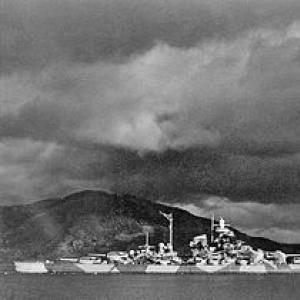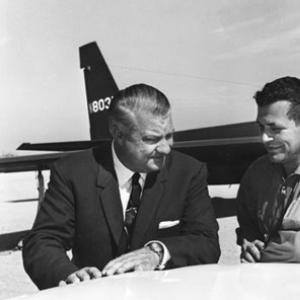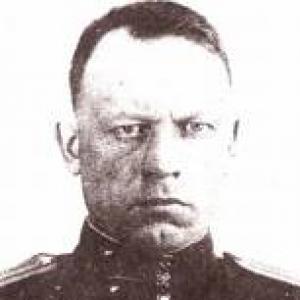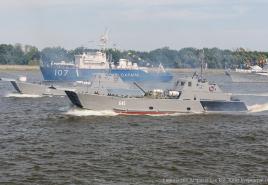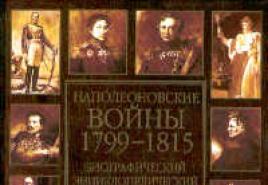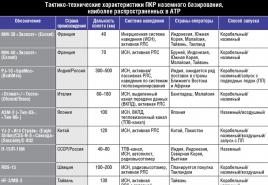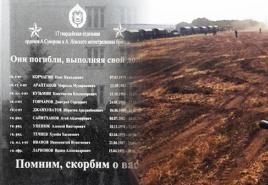F P P Uvarov Short biography. Who is who in the RVSN
Fedor Petrovich Uvarov
General from Cavalry, Fedor Petrovich Uvarov.
Engraving F. Vendrance. 1816
Uvarov Fyodor Petrovich (16.4.1773, the village of Khruslanva Vanevsky district of the Tula province - 11/20/1824, St. Petersburg), General from Cavalry (Oct. 1813), Adjutant General (10/19/1798). From the nobleman known from the XV century; The son of the brigadier was married to the princess of Maria Fedorovna Lubomirskaya (in the 1st marriage for the Graph I. Pototsky, in the 2nd graf, V.A. Klyukov). In 1776 he was recorded by a sergeant in artillery, in November 1780 he was translated by Kappenarmus in the Life Guard Transfiguration Regiment, and on Dec. 1786 Wahmistrome in the Leib Guard Equestrian Regiment. The service began 1.1.1788 by the captain of the Sofia Infantry Regiment. With Saint. The 1790 Major Second-major of the Smolensk Draghogo Regiment participated in hostilities in Poland in 1792 and 1794. In March 1797 transferred to Ekaterinoslav Kirassir Regiment and in Apr. 1798 produced in Colonels. Made a rapid career in Pavel I (for a number of information, this was facilitated by the fact that he became a close friend of Ekaterina Nikolaevna Lopukhina, mother of the emperor's favorite). In March 1798 transferred to St. Petersburg to the Kirassier Regiment, in St. - In the Leib Guard Equestrian Regiment, 19.10.1798 was produced in Majo-General, in Jan. 1800 appointed chief of the Sauna Regiment, and in November 1800 was produced in Lieutenant-General. He took part in a conspiracy against Paul I, but did not play an active role. On the night of the murder - 11.3.1801 - consisted of an adjutant-based instrument. He became one of the nearest to Alexander I, constantly accompanied him in walks and trips. At the head of Kavaleargrad, he distinguished himself in the campaign of 1805. With Austerlice, he drove the guiltlegards in the attack several times, for which he was awarded the Order of St. George 3rd degree. It was famous for cavalry attacks in Guttstadt, Galesberg, Friedland. Accompanied Alexander I in Tilzit. From Nov. 1807 Cavalry commander of the 1st Division (Corps), which was commanded by the Grand Duke Konstantin Pavlovich. Since May 1808, the infantry commander of the 1st Division. In July 1808, named "Senior Adjutant General". In Apr. 1810 commanded the avant-garde of the Moldavian army, participated in the battles with a sylinder, chump, a guide. For the differences in the battery awarded 11/21/1810 with the Order of St. George 2th degree. In 1812, he was appointed commander of the 1st Cavalry Corps, with which 1812 entered in the Patriotic War, under the Kolotsky monastery supported the avant-garde gene. P.P. Konovnitsa. At the critical moment of the Borodino battle, together with M.I. Platov is aimed at around the left flank of Napoleon. At the village of Uzabedovo, the cavalry was stopped by the forces of the gene. F. Ornano and returned back. Although these actions briefly distracted the attention of the enemy, according to M.I. Kutuzov, the task has not been fully fulfilled. Only W. and the board turned out to be generals not represented by Kutuzov for Borodino to award. On the Council in films 1 (13) Saint. spoke against the leases of Moscow and for a new battle. Participated in battles near Vyazma and Red. The campaign of 1813-14 consisted under the Emperor Alexandra I, fulfilling his responsible orders. Districted in the "Battle of Peoples" at Leipzig. After the end of hostilities, only the duties of the adjutant general were performed for a long time, enjoyed a special location and confidence of the emperor. From Nov. 1821 The commander of the Guards Corps, from 1823 member of the State Council. After death, 400 thousand rubles bequeathed to create a monument to the Russian Guard (the Narva Timpal Gates open in 1834 were built for this money).
Book materials used: Zalessky K.A. Napoleonic wars 1799-1815. Biographical Encyclopedic Dictionary, Moscow, 2003

Arakcheev about Uvarova
Uvarov Fyodor Petrovich (1769-1824), General Adjutant and Major General (1799), General from Cavalry (1814), from 1821 commander of the Guards Corps; Throughout the reign of Alexander I, he entered the nearest environment of the emperor. Arakcheev means a book: Bekheev A.A. Necrology F.P. Uvarova. St. Petersburg., 1825. On the attitude of Arakcheev to F.P. Uvarov also testifies to the next anecdote: "At the funeral of Uvarov, the late sovereign followed the coffin. Arakcheev said loudly (it seems, A. Orlov): "One king here hesitates him, what else will he meet him?" (Uvarov One of the Tsarubyts on March 11, 1801) "(Pushkin. T. 8. P. 30-31; diary record of March 8, 1834)
Commander of the 7th Rocket Brigade 05.1960 - 04.1961
Commander of the 7th Rocket Division 04.1961 - 13.04.1970
He graduated from the Tomsk Artillery School (1941), the Military Academy. M.V. Frunze (1954).
He served in rocket troops in the following positions: The commander of the rocket regiment, the commander of the 7th missile brigade, the commander of the rocket division (p. Options), Head of the Department of WPP them. IN AND. Lenin.
Pursuant to the USSR MO Directive on May 30, 1961, the 7th Rocket Engineering Brigade was reorganized to the Rocket Division of the Central Submission. He headed her Colonel P.P. Uvarov.
In the division, all combat starting positions of rocket regiments were built at once. People worked in the day and night. Built residential town, boiler room, headquarters, hospital, school. Roads were laid to the settlement of Ivanteevo, where the residential town was also erected, the roads to the BSP sites. The deployment point was chosen pos. Executive Kalininskaya oblast, on a residential and barracks foundation parts of the Air Force.
Soldiers and sergeants call 1956-1959 were highlighted for the commissioning of the division. and servicemen of the superior service of disbanded parts. In October and November, the soldiers of 1960 appeared to come.
The officers came from naval schools, as a rule, graduated from universities in 1960-1961.
In the combat composition of the division since 1961, there were five rocket regiments, a repair and technical base, a communication node, combat and maintenance units.
On August 16, 1961, for the first time in Division, one of the divisions conducted the first launch of the R-5 missile (8k51) from the Kapustin Yar polygon. In December 1962, the combat calculation of the division of the first division of the rocket regiment held the first launch of the R-16U regular missile (8k64) from the Baikonur landfill.
On February 11, 1963, this division (BSP-12) was first in the division to the combat duty of two ground start-up settings with a rocket R-16U. The management of the division headed by the division commander, the communication node, the assembly brigade of the RTB also took up on combat duty.
The formulation of the division for combat duty demanded from the commander of the division of the schedule for additional classes and simulations before the intercession on combat duty, the fogging of combat calculations and the duty forces of the division as a whole, the organization of recreation of the personnel of the duty forces.
In 1963-1964 Another five divisions were assigned to combat duty: three with terrestrial and two with mining launchers.
Under the leadership of the commander of the division p.p. Uvarov combat payments participated in the development of combat schedules for preparing missiles to launch. It should be noted here that the most active participation in this work came officers of the combat readiness and service of the chief engineer of the Division.
With the intercession of the division on combat duty, the role of the combat management and communication system increased. The commander of the division was located in the communication building, the protected structure was still built.
A lot of effort was given to the division commander and relevant specialists (services, departments) training for combat payments to work on the radio communications funds of the main and team points, equipment of combat posts, clarity in the work and active participation in the organization of all activities of the management points.
On May 24, 1963, the first secretary of the CPSU Central Committee, Chairman of the Council of Ministers of the USSR N.S., was visited by Division Khrushchev, First Secretary of the National Guide of the Unified Party Socialist Revolution, Prime Minister of the Revolutionary Government of the Republic of Cuba Fidel Castro Rus, Minister of Defense of the USSR Marshal of the Soviet Union R.Ya. Malinovsky and Commander-in-Chief of the RVSN Marshal of the Soviet Union N.I. Wings.
Rocket warriors, especially veterans, know how much strength, sleepless nights and nerves cost the preparation of this meeting the commander and the entire personnel of the division.
On March 20, 1964, the division entered the combat composition of the 3rd separate missile corps (Vladimir), having the R-16U missiles in service. Again, sleepless nights and work on the reception of the division into the composition of the corps (comments, acts, non-compliant, malfunction, etc.).
In June 1964, on the basis of missile divisions, as well as everywhere in rocket searches, rocket shelves were formed, the first commanders of which were Guard Lieutenantkoviki E.V. Ilyin, M.M. Kinzburg, A.A. Dubinin, B.P. Tokarev, E.V. Zolotaykin, F.A. Giant, P.I. Kabanov and V.V. Karpivin. B.P. Tokarev and P.I. Kabanov then became commander of divisions, major general.
In March 1966, new rocket shelves were formed in the division, a separate operational and regulatory group, the database of logistics, the assembly brig of Hell OS, etc.
In 1966, 6 rocket regiments were formed with a missile complex with UR-100 missiles (8k84).
For the first time, the division on combat duty overwhelmed by one regiment of the UR-100 OS-100 in 1967
On November 1, 1967, the Division was awarded a memorial banner of the Central Committee of the CPSU, the Presidium of the Supreme Council of the USSR and the Council of Ministers of the USSR of the USSR Supreme Soviet.
In connection with the formulation of combat duty, the OS regiments required a change in the system of exploitation of the missile armament of these regiments. The technical missile base created in the division was led to the operation of missile systems, maintained maintenance, elimination of failures and faults.
The work of the division commander, as well as departments and services, became more complicated, especially given that not only new OS complexes were stood on combat duty, but also the "old" R-16, which were removed from combat duty only in 1977
The technology of bringing the BRC OS to be prepared for combat use required the implementation of the work of the division's headquarters, the Rocket armament service of the TRB of network planning methods, strictest safety and other activities related to the new OS complex.
In April 1970, the Rocket Division enters the combat composition of the rocket army (Smolensk).
Major General P.P. Uvarov in 1970, distributed to his native division and was appointed head of the Department of Rocket Forces WPP. IN AND. Lenin.
Member of the Great Patriotic War from 1942 to 1945
Fired from the ranks of the Armed Forces in 1986
Unfortunately, Peter Petrovich is not alive. [ one ]
* * *
He created a rocket shield
Urearova Street - She is familiar with all Ozerchans. Every day there are hundreds of residents of the municipality. But far from everyone knows why this street is wearing such a name, and the interesting person, whose name is named.
Petr Petrovich Uvarov - the first commander of the 7th Guards Model of the Red Banner Rocket Division. It was under his leadership that the formation and formation of our compound took place. On June 6, 2013, in Pushkin Day of Russia, General Peter Uvarov would have been 90 years old.
[P.p. Uvarov, battery commander.] Petr Petrovich Uvarov was born in the city of Yalutorovsk. Here he graduated from school. With the beginning of the Great Patriotic War, he was called in the ranks of the Red Army. "In December 1941, at the accelerated course, the School graduated from Lieutenant with a group of graduates, aimed at the disposal of the Central Asian Military District, where the 150 separate Rifle Brigade was appointed to the position of the platoon of the 2nd battery 150 separate anti-Tank Artillery Division. (from autobiography P.P. Uvarova).
In April 1942, Echelon arrived at the station Privial under Volokolamsky. The brigade joined the 8th Guards Rifle Corps of the 20th Army. In August of the same year, Uvarov was appointed to the post of battery commander. The first serious injury, in the right hand, received on September 5, 1943 in the battles of the south-west of Yelni and was aimed at cure to the EvicoPost in the village of Krasnogorsk Mary ASSR. In January 1944, aimed at the 41st educational regiment of the reserve of the officers of the artillery of the Moscow Military District, from March to July 1944 he studied at the department of commander of division courses of improving the officer in Kostroma. At their end, he was sent to the 3rd Belarusian front to the post of commander of the Division. From July 1944 to February 1945 He served as a commander of the 2nd Division of the 847th ArtPolka 277 of the Rifle Division 5 Army. He participated in the battles to be released from the German occupation of the Lithuanian SSR, a breakthrough to the Eastern Prussia and the East Prussian operation of the 3rd Belarusian Front. In February 1945, the war for Peter Uvarova ended - again wounded, this time in his left leg, and an evacuity office in the village of Pravdinsk Gorky region.
This is how it is characterized in short military reports: "In battles from August 4 to August 20, 42 showed himself exclusively fearless, composite commander. During the battle on August 5, 42, after the injury of the battery commander, he accepted the command for himself and the fire of direct vendor destroyed 3 Zota, 1 machine gun, 1 mortar, a group of infantry about 10 people, 4 parachutists and got 2 tanks. The battery does not have the loss of material part. "
And another post in a premium document: "Division commander Captain Uvarov during the tank attack of the enemy on August 21, 44. destroyed 7 tanks, 4 armored personnel carriers, 3 large-caliber machine guns, 8 manual machine guns. The tank attack was repulsed. "
General Uvarov stood at the origins of the creation of the USSR missile shield. He was the first commander of the compound - the 7th Guards Rocket Region of the Red Banner Division of the RVSN. In this position he was from 1960 to 1970.
In the historical chronicle of the division, organizational merits of PP are especially noted. Uvarova, who almost from scratch created the most powerful combat connection in the USSR.
Here is how colleagues and colleagues remember him:
Nikolay Davydov "Energy Notes": END OF JUNE 1960 ... At night, I got to the former flight town in the settlement, carried out in the hostel and went to be bosses. All headquarters and management - in two persons: commander Petr Petrovich Uvarov and deputy. Head of Communication, but for now and deputy. For all questions, Lenya Gusin. The commander with each talked, warning about the mode and prohibitions against the Vyshchi Volga with its mostly female population, determined the service place. I, as the main energy, until I sent to deal with the electroreman of the Cech - new objects and the systems have not yet built. Peter Petrovich was one of the first rackets, a specialist, in his office on a huge table. Huge rocket schemes, launching systems were launched, at work, he had a day and spent the night (soon and we had to work as well), the authority enjoyed continuously, was a few, demanding - But not Samodor, coarse - but without a mottery and insults.
[Commander to / h 14245 GW. Major General Uvarov congratulates the participants of the Great Patriotic War with the anniversary holiday - the 2nd fifth of victory.] In general - a real father-commander! Soon he became a young general.
Colonel-General Malinovsky G.N. The time recalls when he was the Deputy Commander of the Division for Special Construction, which was commanded by Lieutenant Colonel P.P. Uvarov: "In those years, the health of the lieutenant colonel Peter Petrovich Uvarov was excellent, and he could work without sleep by day. It was distinguished by his former artillery, the desire to know the weapons well. Often, he asked me: "Run me according to the five scheme." He considered for the obligation to know the work of the missile complex to contact in the relay schemes of the side and the "land". In my work, Peter Petrovich supported me in every way. At the same time, it was very demanding, did not allow familiarity, was intolerable to spoken language distortions. One of the strengths of the nature of Uvarov was the lack of relief when communicating with the senior chiefs of any levels. For this example, I must be deep for him, since at first I often adhere to the sky with contacts with strangers to me. Uvarov's subordination observed strictly, but the interests of the division settled decisively. And about one important quality of my commander. Lieutenant Colonel of Uvarov knew in the face (for memory) the entire personnel of the division. But in the division, only soldiers and sergeants were more than 600 people. Moreover, sergeants knew thoroughly, as it requires the charter from the company commander. This quality of the commander has greatly raised his authority and contributed to the maintenance of discipline at the proper level, the unification of the team.
Typical picture. At night, on Marsh, the Uvarov is bypassed while stopping the column of arthagic with refueling and in the dark, having heard the mother in the group of vacationers after inspection of the aggregates of drivers, unmistakably recognizes Soldier-Squarelov and makes him a remark. He knew not only in the face of subordinates, but also the voice of everyone. I write about this for those commanders who have no 200 soldiers in the shelf, and they are confused even in their names. There should be no faceless mass of subordinates. Respect you can earn only a valid attitude towards them. "
It complements Colonel A.D. Tarantine: "The commander of the division Major General Uvarov was constantly in the center of events in the formulation of rocket regiments on combat duty, at the same time, relevant attention to the construction of a residential town. It was an educated, erudite man with high moral qualities - a man with a capital letter. It was easy to handle people, in every way helped them, especially young officers not only in the service, but also for domestic issues. Never refused to help anyone who turned to him, independent of the officer or soldiers. He respected his subordinates and, if necessary, he stood the mountain behind them. Any business brought to the end, not embarrassed, turned to subordinates, if he misunderstood. He possessed exceptional memory, practically knew the names and patronymic of all division officers. It was always neat dressed and somehow in his own way was proud of a military form. I did everything to the families of officers in the town lived comfortably and calmly. He believed: Good at the officer in everyday life, calmly in service, above the combat readiness of the part and compound.
A permanent assistant in establishing good household conditions in the town was his wife, tirelessly Anna Ilinichna. She was a practically permanent chairman of the division management fence. According to her initiative, the departures of families at Lake Seliger were organized, on collecting mushrooms and berries, trips to beautiful Lake Mikhailovskoye and Istra. Mass walkings under the New Year, May and November holidays. Senior Okox Oksa Sychev for the New Year holidays created fabulous figures from snow and ice on the territory of the town and at the stadium, where the latter has fun in the morning until late evening. "
They are joined by Colonel Alexandrov V.E.: "The first commander of the division of the guardian Major Major Uvarov Petr Petrovich commanded the division for 10 years. He was an excellent organizer who gave itself the cause of mastering the rocket equipment in the division and laying on combat duty of missile systems of intercontinental missiles and rocket regiments of individual starts. It was a man of high culture, demanding to himself and subordinate. He was fair, able to listen to others and listen to their opinions and suggestions.
General Uvarov P.P. Spellly sent the work of the Division officers and primarily the division management officers on a clear fulfillment of their duties in the study of rocket technology, its operation and timely formulation of rocket regiments on combat duty. "
Unfortunately, severe illness, due, apparently, with huge overloads during the reasons of the compound, undermined the Siberian health of Peter Petrovich and did not fully reveal his commander's abilities, as a result of which he was forced to switch to teaching work in Moscow, in the military-political Academy to them. IN AND. Lenin, where he served before retirement in 1986 as the head of the department of operational and tactical training and combat use of strategic rocket troops. For 16 years of teaching activities, Peter Petrovich brought up not one generation of rackets.
The memory of him gently keeps not only relatives, but also colleagues, colleagues, friends ... and not by chance. Peter Petrovich Uvarov is a real patriot, a person who has gone throughout the power to strengthen the power and glory of the Fatherland.
Prepared
Svetlana Pilova.
[
2
]
Fedor Petrovich Uvarov (-) - Senior Adjutant General in Speat Alexander I, participant in many of the battles of Napoleonic wars, General from Cavalry, the first chief of the cavalry regiment.
early years
Fedor Petrovich Uvarov was born 16 (27), 1769 in the Tula province. The representative of the poor, although the old genus of the Uvarov, whose other branches belonged to Count S. S. Uvarov. He was recorded from the 6th year to the service, he lived with his mother in the village of Venevsky County under 18. His father - Brigadier Peter Ilyich Uvarov - was under the court in St. Petersburg, and the arrest was imposed on his property. Only in 1787, Fedor managed to come to his father to the capital and with the help of General Tololmin, decide on the Sofia Infantry Regiment (quartered in Smolensk) with the rank of captain.
Position at Pavle I
Napoleonic Wars
In 1805, the commanded by the Sauna Region, he arrived on November 19, and on the eve of the battle was sent with 4 shelves to enhance the right wing; On the day of the battle, he attacked the enemy several times, and in the evening there was a terrigade of Bagration. For the campaign of 1805. His Order of St. Alexander Nevsky and (01/28/1806) of the Order of St. George 3rd CL. № 129.
| As a reward for excellent courage and prudent leadership, rendered in the battle against the French troops on November 20, 1805, with Austerlice, where, proving courage and ram, the cavalry general required, with hardness retained until the end of the battle of the commanded forces and against multiple attacks of the enemy The cavalry, supported by infantry and artillery, did strong reproduces. |
Alexander I published on July 19, 1808, the Decree, according to which, all adjutant general and flue-adjutants should consist of a team of senior Adjutant General, Lieutenant General Uvarov, and get all the circular regulations and orders from the military collegium exclusively through it. Uvarov is the only member of the Sweet of His Imperial Majesty in its entire history, awarded the highest decree of the status of a senior adjutant.
Accompanied the emperor during the Tilzite and Erfurt dates with Napoleon. In 1810, after the death of the wife-Polka (neborn Princess, Lubomirskaya) was inherited by extensive estates in the Volyn province. In the same year, Kamensky was sent to the Moldavian Army, who instructed him a separate building for covering the siege of the Silistria. Upon taking this fortress, the army moved to noisy. When bobbed, wounded, after which he was awarded on November 21, 1810 with the Order of St. George 2nd Class No. 40
A person who is far from politics, Uvarov used his position to frankly express his thoughts about what Russia's benefits of how he understood it. According to the advice of Archimandrite Foto, he convinced Alexander in danger, which threatens the Russian Church from the Minister A. N. Golitsyn and the mystics similar to him.
Since February 1824, Uvarov sick, the doctors found her throat Cahotku. He died in the Winter Palace. In recent days, his distant relative Count S. S. Uvarov took care of him. He was buried in the Okrug Church of Alexander Nevsky Lavra. K. Ya. Bulgakov wrote Brother on November 21, 1824:
| Fedor Petrovich Dovarova. He died yesterday at an hour in the afternoon. The day before they said that he was better; In the evening he sat, talked, had his whole memory, only his eyes covered were already fog, and he could hardly see anything. The sovereign was in his evening and at five o'clock in the morning; At that time, he was better, but soon after that, that is, in hours, nine, the prince Volkonsky found him lying in forgotten, and there he walked his last breath. |
The funeral of Uvarov was distinguished by a pomp, at all events from the first to the latter were the emperor Alexander and the Grand Princes. Subsequently, on March 8, 1834, Pushkin recorded in the diary: "At the funeral of Uvarov, the late sovereign followed the coffin. Arakcheev said loudly (it seems, A. Orlov): "One king here follows him, what is the other there will be it?" (Uvarov is one of the Tsarubyts on March 11). "
As a sign of appreciation to his subordinate in the Guards Corruptor, Uvarov left 400 thousand rubles for the construction of a monument in their honor. For this money, Narva triumphal gates were constructed later, open 10 years after the death of the general.
In marriage (from 1805) with a widow of General Valerian Zudov, Maria Fedorovna (1773-1810), did not have children.
Achievement list
Personal qualities
Unlike all other conspiracy participants on March 11, Fedor Uvarov, by the end of his life, enjoyed the location of Alexander Pavlovich. It was believed that Uvarov forced to jaruitary convulsion forced to fade exclusively personal devotion to the heir to the throne, and not concern for his own gain.
Uvarov did not have the talents of the commander, but it was humanely related to subordinate and did not recognize the advantages of stepish, because of what he was conflict with the Flatzarad General Arakcheev, who called Uvarov "Sun and Headphones" with the emperor.
Contemporaries drowled over the fact that one of the most closest to the emperor of people was a man who grew up in the village, and therefore he had a poorly known French language and was generally poor. "With not very strict moral rules and with unfavorable mental abilities, - it delicately writes in. kn. Nikolai Mikhailovich, - Uvarov was in the full sense of the word Balcher Happiness. " Man sociable and fun, he loved to organize the reception.
Uvarov sometimes successfully hit the French on the battlefield, but even more successful and killed in a french language in a conversation. The hunt was mortal, and the fate of bitter. His answer is known to His Napoleon, when he asked him who commanded the Russian Connection in a brilliant attack in some battle: - Je, Sire.
This answer delivered the honored nickname general Je. And was distributed in society in a variety of versions. One day, Uvarov and Miloradovich, also known by the bad knowledge of French, about something hotly spoke. Alexander I asked Langeron (french), what they are talking about. "Sorry, the sovereign," answered Langeron, "I don't understand them, they speak French."
Uvarov, Fyodor Petrovich
Fedor Petrovich Uvarov (1773-1824) - Combat General, first served in the equestrian regiment, and then translated into the Smolensk Dragun regiment.
When an uprising broke out in Warsaw, he was there with his squadron, but managed to withdraw it and connect with the gene body. Smelter. After that, he participated in several cases with insurgents in 1793. In 1794, he was appointed General Adjutant. He was one of the participants in the conspiracy given to the murder of Emperor Paul.
In 1805, the commanded by the Sauna Region, he arrived on November 19, and on the eve of the battle was sent with 4 shelves to enhance the right wing; On the day of the battle, he attacked the enemy several times, and in the evening there was a terrigade of Bagration. He was awarded on January 28, 1806 of the Order of St. George 3rd CL. № 129.
In 1810, he was sent to the Moldavian Army of Kamensky, who instructed him a separate building for covering the siege of the Silistria. Upon taking this fortress, the army moved to noisy; Awarded on November 21, 1810 with the Order of St. George 2nd Class No. 40
Patriotic War of 1812
At the beginning of the Patriotic War, he was appointed in the 1st Western Army to command the reserve cavalry corps. In the case of the Colotian Monastery, the Ariergard of General Konovnitsyn supported. In Borodino battle, together with the board, made a raid to the rear of the enemy, but did not fulfill the task, it was drawn into the clashes on the flank and was soon off. Uvarov and boards are few of the generals that are not presented to awards for the Borodino battle.
With Kutuzov, he did not have a relationship. The prince was very dissatisfied with his raid on Napoleon's reasons in Borodina. Military writers, indeed, hardly find the fruits of this raid and often scold with Uvarov (see Clausevitz).
After being in Miloradovich's detachment, in battle at the village of Crimean attack, I promoted a happy outcome of the case; Under Vyazmo and the Red enemy was forced to retreat from decisive attacks of the cavalry.
In 1813 and 1814. Consisted in the emperor Alexander I. In 1821, he was appointed commander of the Guards Corps.
As a sign of appreciation to his subordinate to the Guards Corruptor, Uvarov left 400 thousand rubles for the construction of a monument in their honor. Narva triumphal gates, open in 1834, were later built for this money.
On March 8, 1834, Pushkin recorded a diary: "At the funeral of Uvarov, the late sovereign followed the coffin. Arakcheev said loudly (it seems, A. Orlov): "One king here follows him, what is the other there will be it?" (Uvarov is one of the Tsarubyts on March 11). "
Notes
· Dictionary of Russian generals, participants in hostilities against Napoleon's Army Bonaparte in 1812-1815. // Russian archive : Sat. - M.: Trite Studio N. Mikhalkov, 1996. - T. VII. - P. 586-587.
Fyodor Petrovich Uvarov, 1769 - 1824, son of Brigadier Peter Ilyich, who came from an ancient kind, but of a poor and not reaching a high position, was born on April 16, 1769 in p. Khruslavka, Viennese county, Tula province. Registered from the 6th year of age into service, he could not enter the actual service under the age of 18, due to adverse circumstances: the father was under the court and lived in St. Petersburg, the property was prohibited, and the Uvarov himself had to live with her mother in the village. In 1787 he managed to come to the Father in St. Petersburg and, with the help of General Tullumin, to decide on the Sophia Infantry Regiment with the rank of captain. On the occasion of the war with Sweden, he was sent to the Olonets province in the formed troops there. Its further service proceeded in the drago shelves. In the 90s, Uvarov took part in hostilities in Poland and distinguished himself on the night of April 6, 1794, when he had to fight back from the enemy for 36 hours, for which he was produced in the Premier Majors. In 1795, Suvorov produced him to lieutenant colonels. After 3 years, he got the rank rank. In 1798, Uvarov completely unexpectedly reached a high position: he was transferred to the horse guard, produced in Majora General and granted to general adjutant. The reasons for the sudden elevation of Uvarov were close relationships to the family of the Lopukhin, who took the primary position. During the entire reign of Paul 1, the gracious arrangement of the sovereign to Uvarov was not changed: in 1799 he received the Order of St. Anna 1st Art., Appointed in the chef of the Sauna Corps, next year I reformed into the regiment, was then granted to the Commmors of the Order of St. John Jerusalem and produced in Lieutenant-General (November 5, 1800). Despite the gracious attitude towards him Paul 1, Uvarov took part in the conspiracy, but did not play the active role. On the eve of the unfortunate event, he was an adjutant duty officer, at night with several officers of his regiment located near the heir's rooms with the goal of guarding it. At the topics of Alexander 1, Uvarov accompanied him when declaring troops on the death of Paul 1 and when moving from Mikhailovsky Castle to the Winter Palace. He became one of the most closest to the young Emperor of individuals and almost always accompanied him during walks. In 1805, Uvarov distinguished himself with Austerlice and was awarded George 3. and Alexander tape. He also participated in the war of 1807, and during the Tilzite and Erfurt dates consisted of a sovereign. In 1807, Uvarov was appointed commander of the cavalry of the 1st Division, and next year the commander of the infanteria of the same division. During the Turkish war of 1810, he was contused at Vatin and received George 2th degree. In 1812, Uvarov commanded the 1st cavalry corps, and then the cavalry of the 1st and 2nd Army and especially distinguished himself in Borodina. In 1813-14. He participated directly in the military debt, then he was in a sovereign retinue and was awarded the rank of General-Cavalry and the Order sv. Vladimir 1st degree. At the end of the Napoleonic Wars, Uvarov's activities were limited to the assumptions of the adjutant general; He accompanied Alexander 1 during his journey in Europe and Russia and was at him at congresses in Vienna, Aachen and Lybakh. In 1821, Uvarov was appointed commander of the Guards Corps, and in 1823 a member of the State Council, with leaving in previous positions. December 12, 1823 he received Andrei First Called. Uvarov died from Carbunkula on November 20, 1824. And on November 27, I was buried in the Church of St. Spirit, in the Alexander Nevsky Lavra, in the presence of Alexander 1 and the Grand Princes.
As a sign of appreciation for its subordinate to his Guards Corps, Uvarov left 400 / tons. rubles to the construction in honor of their monument. The Narva Timpal Gate was built for this money, open in 1834.
(From Portrait G. Dow; Gallery of 1812 in the Winter Palace.)

